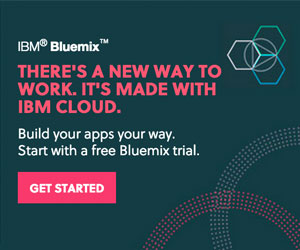“It isn’t a world of Watson: it’s a world with Watson,” said IBM’s Chairman, President, and CEO Ginni Rometty at the company’s World of Watson (WoW) conference in Las Vegas today.
The “with” part came to life in a two-hour presentation with multiple executive guest speakers from around the world who all demonstrated the depth and versatility of IBM Watson’s cognitive superpowers.
As IBM Watson pioneers across industries ranging from healthcare to manufacturing have discovered, AI isn’t “Artificial Intelligence.” It’s Augmented Intelligence, which Rometty says is “about man and machine.” Enhancement, not replacement.
IBM Watson’s capability isn’t just an add-on: it works its way into the DNA of your enterprise.
Rometty shared examples of exactly how that manifests:
- IBM Watson is helping 200 million patients across the world with diagnosis and treatment of illness.
- It’s pairing customers with insurance options and managing their allergies.
- In the classroom, IBM Watson is helping teachers target the right teaching plan for students.
In total, IBM Watson’s already working with over 200 million customers.
“You don’t just do cognitive. Your company can become a cognitive business,” says Rometty.
IBM Watson In Action
The cross-industry leaders that Ginni Rometty brought to the IBM WoW stage demonstrated IBM Watson’s ability to integrate cognitive into their daily operations.
When GM CEO Mary Barra talked about IBM Watson’s manifestation in the company’s 2017 models, she cemented the idea of AI as augmented intelligence. “Don’t just implement technology for technology’s sake: transform experience to gain customers for life,” she says.
The key to cognitive is in the name of the tech: organizations need to be constantly thinking about what they’re doing with Watson’s abilities, and why.
US Secretary of Education John B. King, Jr. places an extremely high value on teachers and understands exactly what Watson can do in the classroom: work with teachers to help students, making personalized learning a reality in public schools.
It turns out that IBM Watson’s intelligence has an artistic side too, when it’s matched with a beat-making musician as talented as Alex Da Kid. Released on the Friday before World of Watson, “Not Easy” has already hit #1 on Spotify.
IBM Watson is already at work in the healthcare field, eliminating human error while enhancing human perception. For Yitzhak Peterburg, Teva Pharmaceutical’s Chairman of the Board, IBM Watson’s abilities provide a crucial assist in managing the big data demands of 200 million customers.
If one thing is for sure at WoW, it’s that IBM has demonstrated a myriad of use cases for IBM Watson and the power of building a cognitive business. By the end of 2017, the company expects IBM Watson will touch 1 billion consumers globally.
To sign up to IBM Watson and learn more, click here.








 /newsrooms
/newsrooms
